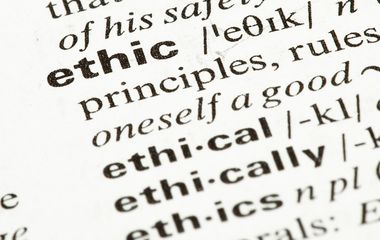
About Us
The Standards Commission is an independent body whose purpose is to encourage high ethical standards in public life through the promotion and enforcement of Codes of Conduct for councillors and those appointed to the boards of devolved public bodies.
Why Respect is Key
6th July 2021
One of the nine key principles of public life in Scotland is that of respect. Councillors and members of devolved public bodies are expected to behave in a respectful manner towards their colleagues, employees and members of the public, and to treat them with courtesy at all times. If they fail to do so, they run the risk of being found in breach of their respective Codes of Conduct and can face sanctions.
But surely this is irrelevant, as elected politicians, such as councillors, should just be able to do and say what they want?
Well… no. A failure by holders of public office to adhere to the principle of respect not only undermines the public’s confidence in them as an individual, but also in their council or public body. It can also have a significant detrimental impact on working relationships within, and the effective running of, a council or public body.
The general public are entitled to expect that public office holders will meet high standards of conduct and that they will be held accountable if they fail to meet those standards.
On the flip side, there has been a great deal of media attention on the personal abuse and threats that politicians and others in public life face, particularly on social media. While those in public life can and should expect that others will disagree with their views and have a right to argue robustly with them, they should not have to face personal abuse or be made to feel unsafe. This can have a hugely detrimental impact on their mental health and, in some instances, can lead to people resigning or deciding not to stand for office.
This problem is especially acute when it comes to underrepresented groups in politics and public life, such as women, disabled people, minority ethnic groups and members of the LGBTI+ community.
Disrespect, bullying and harassment can make anyone, and especially underrepresented groups feel:
- frightened and upset
- less respected / put down
- unwanted
- humiliated
- offended
- threatened
As such behaviour can affect underrepresented groups more, this in turn then has an effect on how representative public life in Scotland is as a whole. For example, if a certain group is made to feel unwanted and humiliated on the public stage, then that group is more likely to feel that the public stage is not for them.
It’s vitally important that everyone plays their part in making Scotland a place where no one feels like they don’t belong. Those in the public eye must lead by example and should be held to account when they do not. However, even though this responsibility starts at the top, it certainly doesn’t end there.

